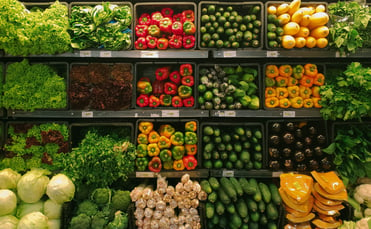
The supermarket shop is one of a few outings we as a society are permitted to do. If we are healthy and able, if shopping was once enjoyable, the guilt some may feel for venturing out along with the rules one must follow can impose an anxiety-inducing experience, ripping what little pleasure we might hope to get from perusing the isles while dreaming up marvellous meals to create with all the time at home. Nevertheless, it is a privilege and we are grateful for it and to all those who keep this convenience going. But not everyone has access to this privilege.
Growing concern over increases in food insecurity abound across the country. Responses to the COVID-19 crisis continue to be largely focused on the most immediate needs, and food is one of the most tangible ways to do so. It is certainly one of the quickest and easiest responses Canadians have a history of opting for in the face of need.
Food assistance programs, namely by way of food banks and community meals, are themselves being needed more than ever on the front lines and are finding creative ways to adjust how they service their expanding clientele. Some challenges include dwindling volunteer numbers, fewer donations, and changes to the food supply; these services have had to quickly shift to feed the demand exacerbated by a surge in unemployment. Halifax for example, has seen numbers of community meals double in a mere couple of weeks. In Saskatoon, the number of visitors to their food bank has soared.
And it doesn’t stop here, responses all over the country are happening to meet the needs of children, in particular, who have lost a safety net. Take for instance, school meal programs. In Nunavut, school staff in Iqaluit have joined forces to continue their breakfast program, albeit differently, despite school closures through their ‘breakfast in a bag’ offering. In Lethbridge, the breakfast and lunch program has gone mobile with a partnership delivering lunches to homes across the city. This approach has made a special effort to combine nutrition and mental wellness. $3 Million has recently been committed to Alberta's Nutrition Program to continue feeding students ‘in any way possible.’
It may be imperfect, at best there has been a patchwork of food programs and services across the country, and as demand has soared, governments and communities are stepping up in the face of this crisis. And now the Canadian government has announced $100 Million in funding to support national, regional and local food organizations to help people and communities experiencing food insecurity through the Local Food Infrastructure Fund.
What will this mean as we look to recover post-crisis? While many measures may only be short-term fixes, this is a time where we hope the short term is just that and in the meantime, we must do what we can to find collaborative and innovative ways to ensure those who need help get it, much of which we are adapting as we go. It is promising that all of society is stepping up to fill the gaps.





